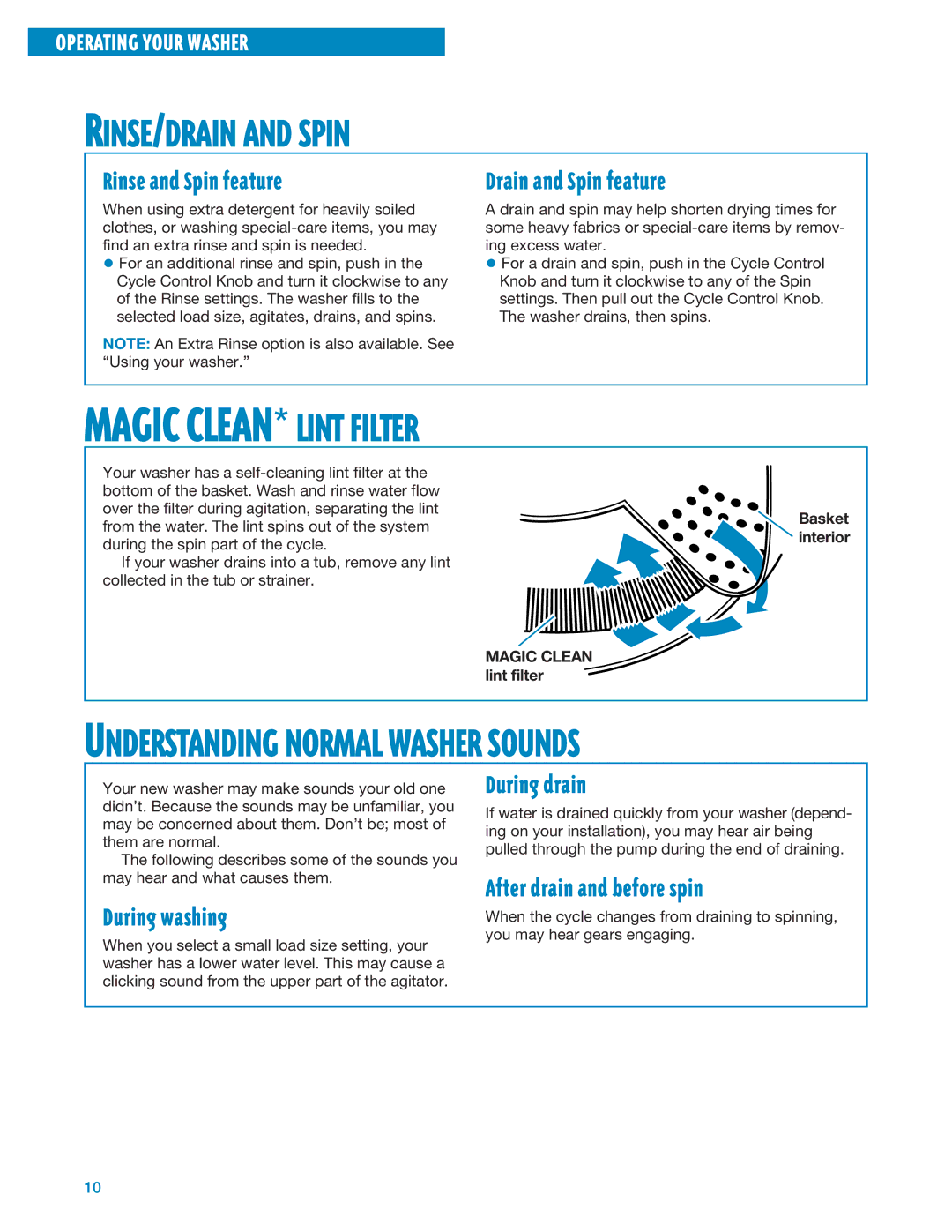
OPERATING YOUR WASHER
RINSE/DRAIN AND SPIN
Rinse and Spin feature
When using extra detergent for heavily soiled clothes, or washing
•For an additional rinse and spin, push in the Cycle Control Knob and turn it clockwise to any of the Rinse settings. The washer fills to the selected load size, agitates, drains, and spins.
NOTE: An Extra Rinse option is also available. See “Using your washer.”
Drain and Spin feature
A drain and spin may help shorten drying times for some heavy fabrics or
•For a drain and spin, push in the Cycle Control Knob and turn it clockwise to any of the Spin settings. Then pull out the Cycle Control Knob. The washer drains, then spins.
MAGIC CLEAN* LINT FILTER
Your washer has a
If your washer drains into a tub, remove any lint collected in the tub or strainer.
Basket interior
| MAGIC CLEAN | |
| lint filter | |
| ||
UNDERSTANDING NORMAL WASHER SOUNDS | ||
Your new washer may make sounds your old one | During drain | |
didn’t. Because the sounds may be unfamiliar, you | If water is drained quickly from your washer (depend- | |
may be concerned about them. Don’t be; most of | ||
ing on your installation), you may hear air being | ||
them are normal. | ||
pulled through the pump during the end of draining. | ||
The following describes some of the sounds you | ||
| ||
may hear and what causes them. | After drain and before spin | |
| ||
During washing | When the cycle changes from draining to spinning, | |
When you select a small load size setting, your | you may hear gears engaging. | |
| ||
washer has a lower water level. This may cause a |
| |
clicking sound from the upper part of the agitator. |
| |
|
| |
10
